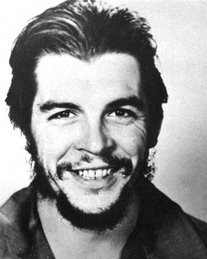Please share this article with your contacts. Thanks!
The auspicious meeting of Pachamama and Gaia
Leonardo Boff
Theologian-Philosopher
Earthcharter Commission
I want to introduce a book that will be published soon in Brazil: Pachamama and the Human Being, (La Pachamama y el ser humano, Ediciones Colihue, 2012) by Eugenio Raúl Zaffaroni, well known in Brazil's judicial circles. Zaffaroni is a distinguished Argentinean magistrate, a member of the Supreme Court from 2003 to 2014; and professor emeritus at the University of Buenos Aires.
Pachamama and the Human Being is among the best eco-philosophical contributions written of late. It is in the lineage of the 2015 encyclical, Laudato Si, on the Caring for the Common Home, by Pope Francis, also Argentinean. With admirable scientific and philosophical data, Zaffaroni addresses the question of integral ecology, especially social violence, and in particular, violence against animals.
The most important aspect of his book is its critique of the dominant paradigm, that arose with the founding fathers of the XVI and XVII century modernity that abruptly introduced a profound division between the human being and nature. The natural contract, present from time immemorial in the Occidental and Oriental culures, suffered a fatal and lethal blow.
The Earth stopped being The Magna Mater of ancient times, the Pachamama of the nations of the Andes... the Gaia of the contemporaries, something alive and a generator of life, and was transformed into an inert thing (the res extensa of Rene Descartes): a collection of resources at the disposal of the unlimited voracity of human beings. The formulation by Descartes is classic: the human being is the maître et possesseur of nature, namely, the human being is master and lord of nature. The human being can do with nature what the human being pleases. And humans have done exactly that.
Modern culture was built on the understanding that the human being is dominus, lord and owner of everything. Things do not have intrinsic value. Contrary to what later will be affirmed by the Earthcharter, and with powerful strength by Pope Francis' encyclical letter, things have value only because they can serve human beings.
This is the project of power, understood as a capacity to dominate everything, based on who holds the most power. In this case, it was the Europeans, who carried out the program of subjugating nature, the invasion and conquest of the world, the colonization of whole nations, the genocide, ecocide and destruction of ancestral cultures. And they did it using the brutal strength of their weapons: the sword and the Cross. And now they accomplish it with weapons capable of extinguishing the human species.
Zaffaroni studies the emergence of this aspect of civilization, and does so with a great bibliographical wealth. Courageously and with great critical freedom, he faces the conceited coryphaeus of modern thinking like Friedrich Hegel, Herbert Spencer, Charles Darwin and Martin Heidegger. I will concentrate on his criticisms of the Hegel of the Geist, (spirit). With his philosophy-ideology Hegel became the main exponent of ethnocentrism. Spencer with his biologism enshrined the White race as superior and considered all other races inferior, which wound up legitimizing colonialism and all types of prejudice.
Zaffaroni touches the question of the animal, understood as a subject of rights. He writes: "in our judgment, the juridical value of the crime of mistreatment of animals is none other than recognition of the right of the animal itself not to be object of human cruelty, for which it is necessary to recognize the character of the animal as a subject of rights". The author is harsh in demonstrating that "we have turned out to be the biological champions of intra-species destruction and the greatest inter-species predators". His proposal is clear: "Only by substituting the knowledge of the dominus for the frater we can regain human dignity" and experience brotherhood and sisterhood with all other beings.
Latin America was the first to inaugurate an ecological constitutionalism, including the rights of nature and of Mother Earth in the Constitutions of Ecuador and Bolivia. Previously, and also for the first time, it was Mexico that introduced social rights in her Constitution of 1917. Zaffaroni eulogizes the creative potentialities inherent in the Andean vision of "good living and coexisting" (sumak kawsay) - the harmony of the human being with nature; and as also seen in Gaia - the Earth as a living, self-regulating super organism, always producing and reproducing life. Pachamama and Gaia are two paths that encounter each other "in a happy coincidence of the center and the periphery of planetary power". Both are carriers of the hope for an Earth Common Home, where all beings are included. They will liberate us from the apocalyptic threats of the end of our civilization and of life.
Zaffaroni brings us a brilliant and convincing perspective, a severe criticism on the one hand, but also one filled with hope on the other. He deserves to be read, studied, and that his vision of an holistic ecology that profoundly integrates all the elements of nature and of the universe be incorporated into our understanding.
Leonardo Boff
07-20-2017
Free translation from the Spanish sent by
Melina Alfaro, alfaro_melina@yahoo.com.ar.
Done at REFUGIO DEL RIO GRANDE, Texas, EE.UU.
You have received this message because you are in REFUGIO DEL RIO GRANDE's list. If you do not want to continue on our list, please let us know sending a message asking to delete your subscription. Thanks.

